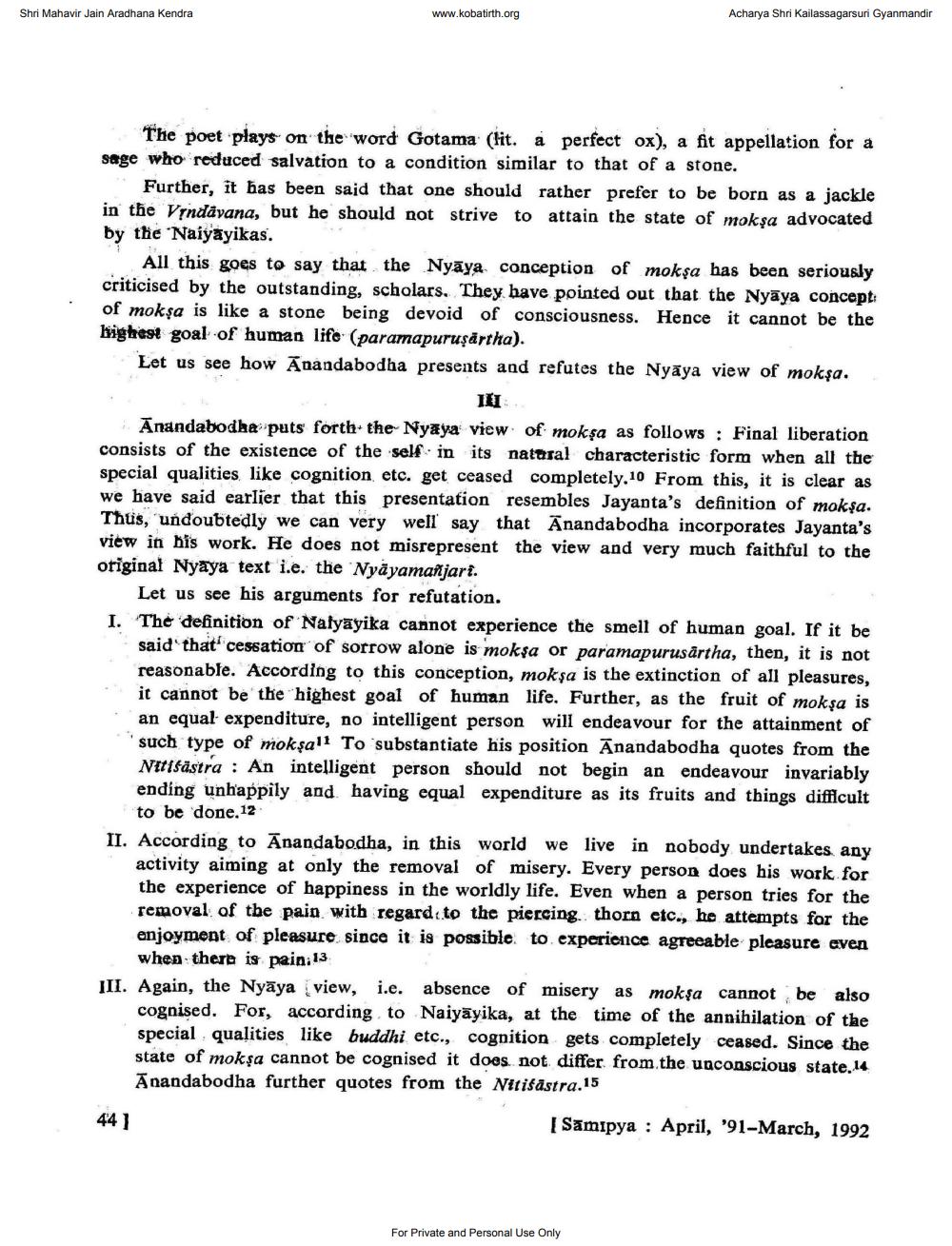________________
Shri Mahavir Jain Aradhana Kendra
www.kobatirth.org
The poet plays on the word Gotama (lit. a perfect ox), a fit appellation for a sage who reduced salvation to a condition similar to that of a stone.
Acharya Shri Kailassagarsuri Gyanmandir
Further, it has been said that one should rather prefer to be born as a jackle in the Vṛndavana, but he should not strive to attain the state of mokşa advocated by the Naiyayikas.
All this goes to say that the Nyaya conception of mokşa has been seriously criticised by the outstanding, scholars. They have pointed out that the Nyaya concept of mokşa is like a stone being devoid of consciousness. Hence it cannot be the highest goal of human life (paramapuruşartha).
Let us see how Anandabodha presents and refutes the Nyaya view of mokşa.
III
Anandabodha puts forth the Nyaya view of mokşa as follows: Final liberation consists of the existence of the self in its natural characteristic form when all the special qualities like cognition etc. get ceased completely.10 From this, it is clear as we have said earlier that this presentation resembles Jayanta's definition of mokşa. Thus, undoubtedly we can very well say that Anandabodha incorporates Jayanta's view in his work. He does not misrepresent the view and very much faithful to the original Nyaya text i.e. the NyayamaЛart.
Let us see his arguments for refutation.
I. The definition of Nalyayika cannot experience the smell of human goal. If it be said that cessation of sorrow alone is mokşa or paramapurusartha, then, it is not reasonable. According to this conception, mokja is the extinction of all pleasures, it cannot be the highest goal of human life. Further, as the fruit of mokşa is an equal expenditure, no intelligent person will endeavour for the attainment of such type of mokşal To substantiate his position Anandabodha quotes from the Nttisästra: An intelligent person should not begin an endeavour invariably ending unhappily and having equal expenditure as its fruits and things difficult to be done.12
II. According to Anandabodha, in this
world we live in nobody undertakes any activity aiming at only the removal of misery. Every person does his work for the experience of happiness in the worldly life. Even when a person tries for the removal of the pain with regard to the piercing thorn etc., he attempts for the enjoyment of pleasure since it is possible to experience agreeable pleasure even when there is pain.13
441
III. Again, the Nyaya (view, i.e. absence of misery as mokşa cannot be also cognised. For, according to Naiyayika, at the time of the annihilation of the special qualities like buddhi etc., cognition gets completely ceased. Since the state of moksa cannot be cognised it does not differ from the unconscious state. 14 Anandabodha further quotes from the Nttisästra.15
[Samipya: April, '91-March, 1992
For Private and Personal Use Only




